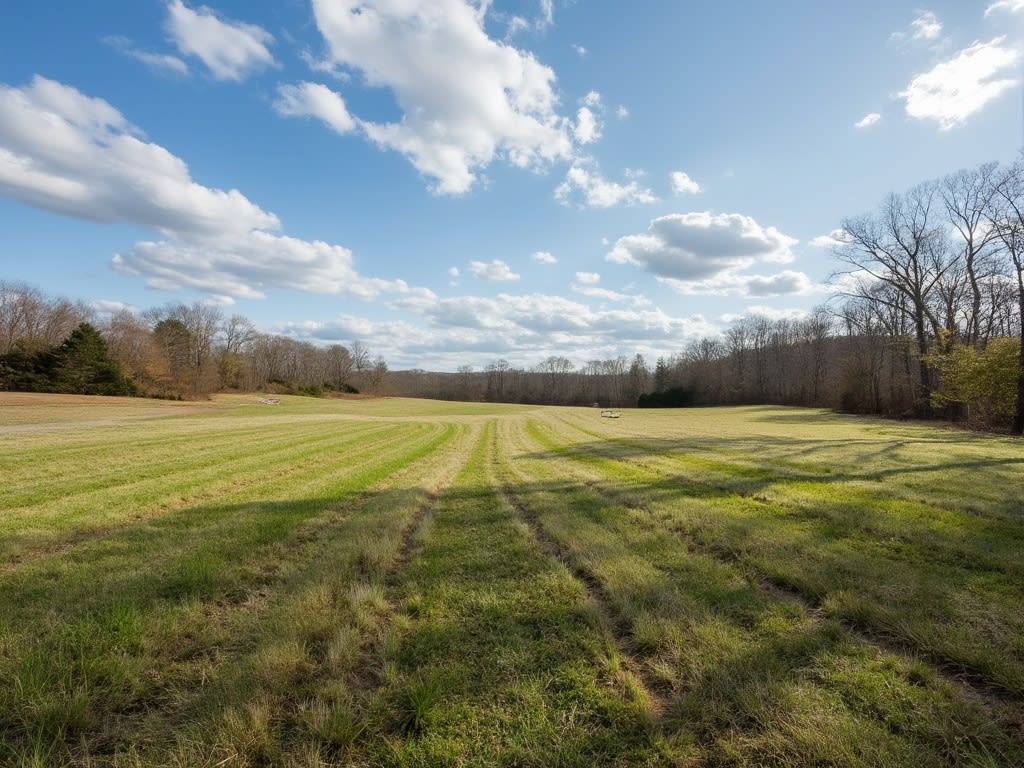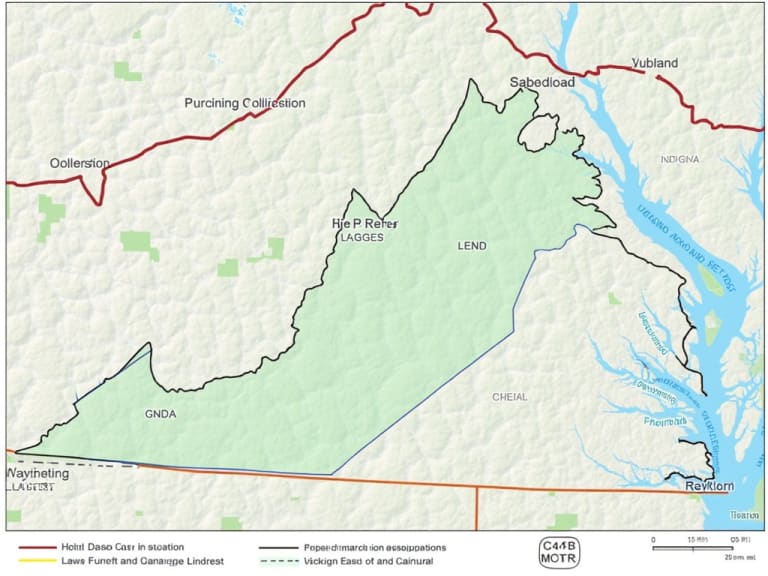Selling or buying land in Virginia requires specific legal documents and verification steps to complete a valid property transfer. I recommend gathering all necessary paperwork including title deeds, purchase agreements, disclosure statements, title insurance, and legal protection documents before filing them with the county clerk’s office.
Key Takeaways
- Title searches and title insurance shield buyers from ownership conflicts and previous claims tied to the property
- Each land sale needs a Virginia Disclosure Statement listing known defects, limits, and rights-of-way
- Expect closing costs between 2-3% of the purchase price, covering attorney fees, recording fees, and transfer taxes
- A current land survey confirms precise property lines and measurements
- Hiring a real estate attorney helps meet Virginia property law requirements and manages document preparation
Essential Documents Required for Virginia Land Transactions
Core Transaction Documents
Title deeds stand as the foundation of land ownership transfers in Virginia. Each deed must contain clear property descriptions, seller and buyer information, and notarized signatures. I recommend getting your deed recorded at the county clerk’s office within 24 hours of closing to secure your ownership rights.
Your purchase agreement sets the legal framework for the transaction. Key elements include:
- Detailed sale price and payment terms
- Property boundaries and descriptions
- Specific closing date
- Contingencies and special conditions
- Signatures from all parties
Required Legal Protection Documents
A Virginia Disclosure Statement is mandatory for all land sales in the state. This document outlines known property defects, restrictions, and rights-of-way that might affect the land’s value or use.
Title protection forms another critical layer of documentation. A thorough title search report reveals any existing liens, disputes, or ownership issues. I strongly suggest securing title insurance to protect against future claims or ownership challenges that might surface after purchase. The policy shields you from financial losses if title problems emerge.

Legal Requirements and Property Verification
Essential Documentation Checklist
A land survey stands as a critical document in Virginia property transactions. This detailed assessment maps out exact property boundaries, total acreage, and specific dimensions. I recommend getting an updated survey even if an older one exists, as property lines can shift over time.
Before proceeding with any land transaction in Virginia, you’ll need these key documents:
- Professional land survey showing current boundaries and measurements
- Local zoning verification certificate confirming allowed property uses
- Current property tax statement proving all taxes are paid
- Power of attorney documentation if you’re acting on someone’s behalf
- Title search results verifying ownership history
- Boundary line agreement forms if shared property lines exist
The Virginia Department of Taxation requires all property taxes to be fully settled before completing any land sale. Your local county assessor’s office can provide a tax clearance certificate showing the current status.
A power of attorney becomes necessary if you’re buying or selling on behalf of another party. This legal document must be notarized and specifically outline the authority to conduct real estate transactions in Virginia.
Zoning verification protects both parties by confirming permitted land uses. Contact your local planning department to obtain current zoning documentation, which outlines building restrictions and allowed activities for the property.
Understanding Title and Liens
Title Search Process
A title search reveals critical details about a property’s ownership history and potential legal issues. This detailed examination checks for existing mortgages, unpaid taxes, or other claims that could affect the transfer of ownership. Title insurance adds an extra layer of protection for both buyers and sellers by safeguarding against unforeseen ownership disputes or claims.
Common Property Claims and Releases
Several types of claims can impact a property’s clear title status. Here are the key issues I’ve seen emerge during title searches:
- Tax liens from unpaid property or income taxes
- Mechanic’s liens from unpaid contractors
- Judgment liens from court decisions
- Child support or alimony liens
- HOA assessment liens
- Second mortgage claims
Before closing a land sale, all liens must receive proper releases. This process involves obtaining official documentation showing the debt’s payment and the lien holder’s release of their claim. I recommend working with a title company to handle the verification process, as they’ll ensure each document meets Virginia’s legal requirements.
The final step involves confirming clear title status, where no outstanding claims exist against the property. This verification typically appears in a title search report, which documents the property’s complete ownership history and confirms all liens have been properly released.

Financial Aspects and Closing Costs
Typical Closing Cost Breakdown
Closing costs in Virginia add up to 2-3% of the property’s purchase price, based on data from the Virginia Association of Realtors. I’ll break down the key expenses you’ll need to consider:
Here are the primary closing costs for land transactions in Virginia:
- Attorney fees: $800-1,500 for document preparation and review
- Title search fees: $200-400 to verify clear ownership
- Recording fees: $30-50 per document filed with the county
- Property transfer tax: 0.25% of the sale price
- Prorated property taxes: Calculated based on the closing date
- Title insurance: 0.5-1% of the purchase price
- Survey costs: $500-1,000 if required
I recommend setting aside at least 3% of your purchase price to cover these expenses comfortably. Your specific costs can vary based on the county and property value. For example, a $100,000 land purchase typically requires $2,000-3,000 in closing costs.
Most fees are negotiable between buyer and seller, except for state-mandated charges like transfer taxes. You can shop around for services like title companies and attorneys to find competitive rates. Some sellers might agree to cover certain closing costs as part of your purchase agreement.

The Closing Process
Required Documents and Recording
Closing land deals in Virginia requires specific documentation to complete the transfer properly. I recommend preparing these essential documents before the closing date:
- Original deed with buyer and seller signatures
- Settlement statement detailing the transaction
- Property survey (if completed)
- Title insurance policy
- Tax certificates showing paid property taxes
- Power of attorney documents (if applicable)
Filing and Transfer Steps
The deed must be recorded at your local county clerk’s office to make the ownership transfer official. After signing the closing documents, the title company or attorney submits the deed for recording. The clerk processes the paperwork and assigns an official record number.
Virginia law mandates keeping detailed payment records for the transaction. I suggest retaining copies of wire transfers, certified checks, or other proof of payment methods used. Once recording is complete, the clerk mails the original deed to the new owner, typically within 2-4 weeks.
You’ll need to pay recording fees and any applicable transfer taxes at closing. The exact amounts vary by county. The title company calculates these fees in advance and includes them in the closing costs. After recording, the property officially transfers to the new owner, who then receives updated tax records reflecting their ownership.

Professional Assistance and Market Considerations
Legal and Market Support
I recommend hiring a real estate attorney for all Virginia land transactions. They’ll spot potential issues in contracts, ensure clear title transfers, and handle negotiations with precision. These legal experts protect your interests while maintaining full compliance with Virginia property laws.
Current market conditions impact your buying or selling strategy. Here’s what to focus on with professional support:
- Title examination and deed preparation
- Contract review and negotiation assistance
- Zoning compliance verification
- Property boundary confirmation
- Settlement coordination
- Tax implications assessment
A skilled attorney combines deep knowledge of local regulations with practical transaction experience. They’ll check that your land purchase or sale meets Virginia’s strict zoning requirements and building codes. Getting professional guidance reduces risks and streamlines the entire process, making your transaction smoother and legally sound.


